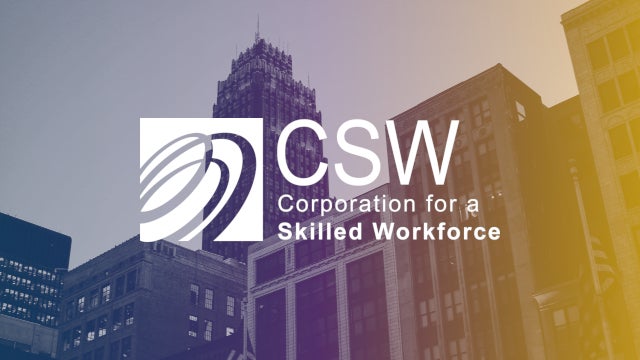This week, Mayors from across the United States are gathering in Washington, D.C. The Future of Work will be a major topic on this year’s agenda, with Aspen Institute President and CEO Walter Isaacson participating in a panel on the topic. While there has been much attention paid to what cities are doing to attract AmazonHQ2, Mayors should also focus on how they can help workers in their cities succeed in a fast-evolving labor market.
One key trend Mayors must consider is the recent growth in non-traditional work – creating opportunities for policymakers to develop new strategies to help their residents harness the benefits of emerging jobs such as those in the gig economy, while creating new protections against the insecurities presented by independent work. And on that point, the City of San Francisco has been a leader. This past September, the San Francisco Office of Economic and Workforce Development (OEWD) partnered with Samaschool – a non-profit specializing in helping workers understand, access, and succeed in online gig economy work – to launch a pilot program that provides new supports to aspiring gig economy workers. The goal: to help city residents take advantage of gig economy work opportunities to gain experience, develop skills, and earn additional income.
The program includes a new “Gig Economy Starter Kit for Freelancers” – a roadmap to becoming a micro-entrepreneur working in the gig economy. It includes a series of free interactive training modules and videos on varying topics unique to independent work. The training modules and videos are available online via the San Francisco Business Portal website. Modules include videos, slideshows, in-depth guides, quizzes, and community discussion boards. For example, the “Financial and Career Planning” course tests workers’ knowledge of independent contractor tax obligations, provides an overview of a typical contract, and outlines the difference in rights afforded to independent contractors versus employees – such as the lack of overtime protection or the right to determine where, when, and how work is done. Beyond these online resources, the city also offers in-person assistance programs at San Francisco workforce centers to help workers go through the modules with peers and an instructor.
Samaschool’s partner organizations provide mid- to high-level skills training, in particular for workers in information technology jobs and home health care, to predominantly underserved populations; Samaschool, in turn, helps those workers access gig work, while providing training on how to manage the challenges of working independently[1] such as complying with complicated business licensing, operating, and tax requirements that may be unfamiliar to those who have only worked in traditional employment. For example, Samaschool assists IT trainees access gig work through a partnership with The Stride Center, a Bay Area non-profit focused on assisting men and women with barriers to employment pursue careers in the technology field. Samaschool helps trainees enrolled in The Stride Center’s A+ Certification apply their skills, build their resumes, and earn income by accessing work through Field Nation, an IT gig work platform.
The training modules developed by Samaschool for the partnership with OEWD include the following lessons that have helped train over 3,000 clients:
- Professional communications, including contracts and bidding for work
- Customer service and client management
- Platform specific matching and navigation
- Career planning and goal setting
- Finances and taxes
- Trust, safety, and other protections
- Business planning/time management
Samaschool also helps workers identify which on-demand platform companies operate in their geographic area, while assisting them with opening accounts and developing effective profiles. While this programming is valuable to anyone seeking independent work, it is particularly helpful to lower income populations who may lack digital literacy or English proficiency.
The OEWD plans to incorporate Samaschool’s modules into its workforce training programs this year. In addition, OEWD and Samaschool are aiming to learn which supports are most effective for aspiring gig workers, and which industries might benefit from incorporating these supports and connections to gig work. By providing enrollees of city-run training and education programs with a better understanding of, and access to, relevant independent work opportunities, participants in these programs can be exposed to a broader menu of work options.
Unfortunately, as the Government Accountability Office noted in a recent report, it can be difficult for workforce development agencies to measure the effectiveness of programs targeted at independent work because data on earnings from independent work is currently unavailable to evaluators. To broaden the data collected and improve results, San Francisco plans to assess changes in self-employment income, in addition to W-2 wage data.
Independent work can provide flexibility and new ways to earn income. It can also bring financial instability, unclear career pathways, and a lack of training and education opportunities. Mayors would be well-served to evaluate partnerships like OEWD and Samaschool in order to determine whether their constituents could benefit from opportunities in the gig economy.
[1] An Aspen Institute Workforce Strategies Initiative partnership in 2016 with the OEWD and other San Francisco-based workforce stakeholders surveyed 713 freelancers to better understand the types of supports they might need. Among the challenges identified by respondents were finding consistent clients, promoting brand recognition, networking, skillset gaps, and lack of knowledge about legal issues related to contracting.

